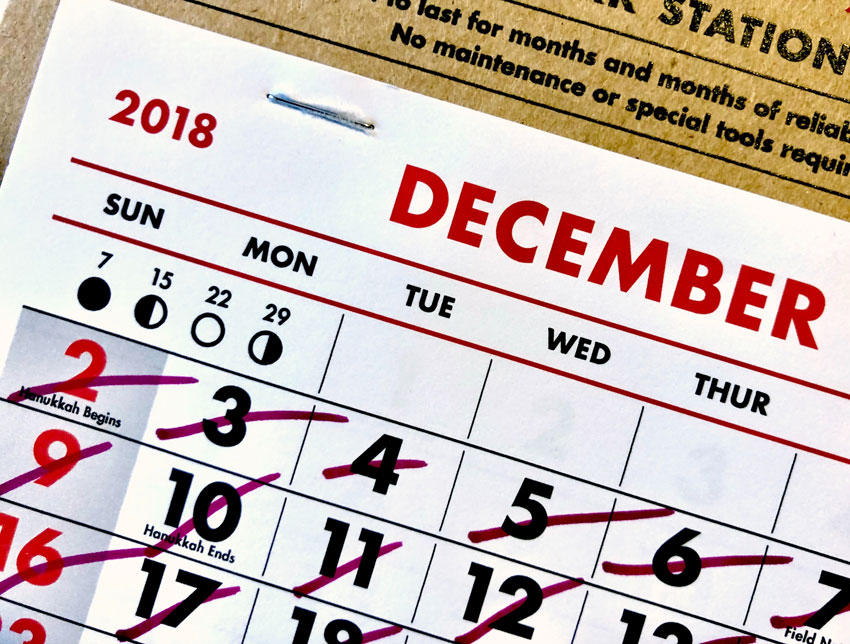The amount of time that someone needs to take Semaglutide is dependent on several factors.
For example, if someone starts taking it and doesn’t see any improvement after 12 weeks, it’s likely that the prescriber would want to discontinue treatment as it should have started to show some results in this amount of time.
However, if someone is showing promising signs of improvement and Semaglutide seems to be working for them, then it’s possible for them to keep taking it for as long as they need to.
If you’re taking Semaglutide for type 2 diabetes, then you may need to stay on it for longer than if you were taking it purely for weight loss.
This is because T2DM is often a life-long condition that requires long-term management with medication if diet and lifestyle changes haven’t been able to control blood glucose levels on their own.
However, if you have been prescribed this treatment for weight loss, then you may be able to stop taking it once you reach your goal weight and have maintained it for a while.
Achieving your weight loss goals
Achieving your weight loss goals isn’t a fast process, as rapid weight loss isn’t often a suitable and maintainable option for many people with a high BMI.
However, we are here to help and guide you through every step of your weight loss plan, from medical treatment to diet, exercise and education, all included in the cost of a consultation.
If you have a high BMI (over 30) and want to achieve a healthy weight for your height (a BMI of 18.5-24.9), then it’s often best to set smaller goals along the way, such as a 5% or 10% loss of your initial starting weight.
Setting these small goals on the way to your end goal helps to keep things manageable and achievable, which can help with motivation and overall success of maintaining a healthy weight.
When you first take this type of treatment, or if you’re restarting after a few weeks off, you’ll start by using the lowest dose available.
This is the 0.25mg dose of weekly injections, and the 3mg dose of daily tablets.
After a month on the lowest dose, your prescriber will usually increase your dose, although they will need to consider whether you’re experiencing side effects and whether you’re making the progress you should be making during your treatment.
If you’re using weekly injections, this will increase to 0.5mg per week for another month.
If you’re taking daily tablets, you’ll likely be placed on the 7mg daily dose.
However, please bear in mind that this is the standard treatment plan and could be altered by your prescriber depending on your personal circumstances.
Finally, after a month on the higher dose, you will be assessed to see whether or not you should increase your dosage again.
This would mean using 1mg if you use weekly injections, or taking a 14mg tablet each day if you’re using daily tablets.
This is called titrating, and it’s recommended in order to reduce the risk of severe side effects that you can experience when starting this type of medication.
It also ensures that your weight loss will start gradually instead of rapidly.
Once your body has had time to get used to the medication via titration, you should find that the side effects will begin to wear off and you’ll be able to settle into a comfortable routine with Semaglutide.
You will learn the new limits of your appetite and to listen to your body when you become full.
Overeating can worsen side effects, which is another reason we recommend titration, as it gives you a chance to get used to gradually reducing your portion sizes.
For as long as you choose to stay with myBMI, our specialists will help to manage your weight by checking on your progress and encouraging you with helpful advice and articles.
At myBMI, we want to help you to achieve your weight loss goals to become a healthier version of you.
Discuss titrating down to a maintenance plan
Once you’ve achieved your desired weight, you may want to discuss reducing the dose of your weight loss treatment with your prescriber in order to maintain your weight, rather than keep reducing it.
If you are a patient with myBMI we will discuss this with you during one of your regular consultations, and our weight loss specialists will decide whether or not this is a suitable option for you.
If it is, you’ll be given further support and advice on how to maintain your weight with minimal gain.
Some people may need to stay on a maintenance dose of a GLP-1 Receptor Agonist for a while to be able to manage their weight effectively, but as long as side effects are minimal or tolerable, this should be manageable under the supervision of a prescriber.
Your health is a two-way conversation, and your prescriber will always work with you to help you achieve your goals and to maintain a healthy weight for life.
Is Semaglutide safe long term?
Some people do need to take Semaglutide for a long time.
For example, some adults with type 2 diabetes mellitus have been taking Semaglutide injections since it was released in the UK in 2019.
However, as the drug is still relatively new, there isn’t a great deal of information available on the safety of taking it on a long-term basis.
However, one study published in December 2020 did study the long term safety of Semaglutide in patients with T2DM, and it concluded that when taken on a long-term basis, Semaglutide was well tolerated and blood glucose levels were managed and maintained.
Your prescriber will work with you to help manage your weight loss and how long you continue to take a GLP-1 Receptor Agonist, but as long as you aren’t experiencing any adverse effects, it’s likely that you will be able to stay on it for as long as you need to.
Other, similar GLP-1 Receptor Agonist medications have been proven to be safe long-term for both T2DM and weight loss (for example, Victoza and Saxenda).
However, if you have any concerns about any aspect of your treatment, please do speak to your GP or one of our weight loss specialists who’ll be happy to provide further advice based on your medical history.








